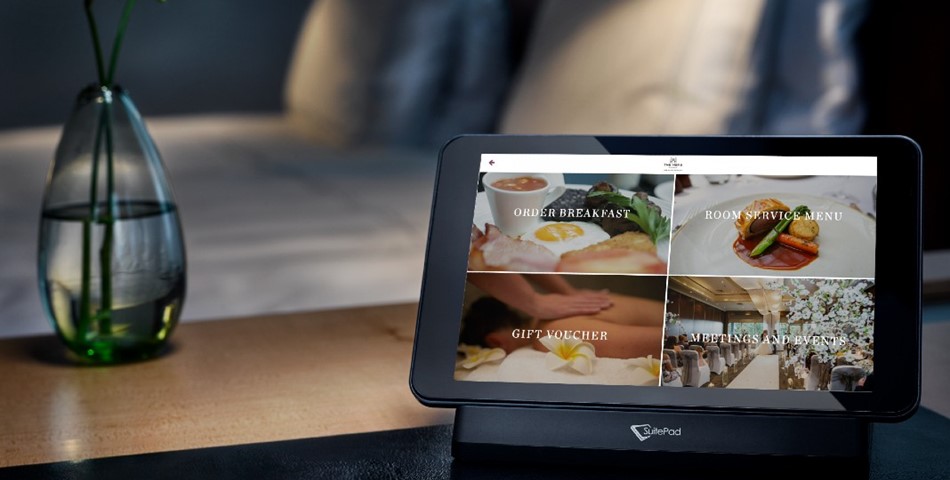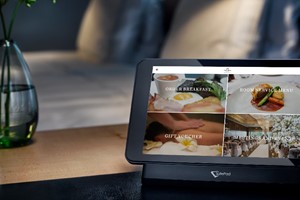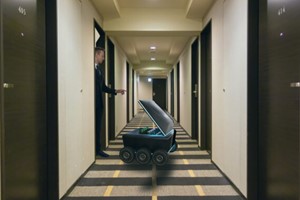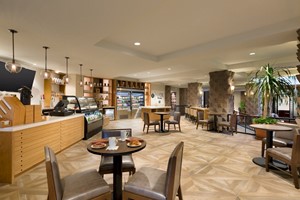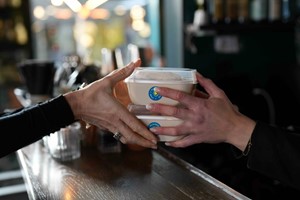Staff shortages – on the rise due to the ongoing effects of the pandemic – is the latest challenge faced by our tourism operations that comes with the return in demand. Hoteliers are struggling to provide their usual services to guests, some even resorting to operate at lower capacity rather than risk a slip in standard.
It also spotlights the importance of guest experiences for those in the business of hospitality.
As hoteliers navigate these new challenges, technology can be the anchor of helping to ensure travelers feel informed, valued, and safe right from their initial enquiries until after their trip is over.
Throughout the guest’s journey from searching right through to after their trip is over, today’s mobile-first travelers are looking for personalized content and communication that is relevant to them. So, here’s a look at some of the ways hoteliers can leverage technology to automate and reduce workload burden for staff while engaging and maintaining positive relations with travelers.
Pre-trip planning
During the initial research phase of the journey, traveler’s view immense amounts of online content. Good content, from robust hotel descriptions to compelling imagery or information on nearby points of interest, has for a long time been an important part of influencing a traveler’s booking decision. But in a post-Covid world, new elements have come into play and become much more important.
Travelers now, and for the foreseeable future, are much more demanding of the health and safety information a hotel provides before booking. Tourists increasingly favor hotels with higher health and safety standards, and health, hygiene and safety have become crucial ways to earn guest trust.
Another key trend that has become a significant priority for traveler’s is flexibility. Refundable lodging rates are around 15 per cent more expensive than non-refundable ones but remain much more popular, emphasizing how concerned travelers are that they are able to make changes to their trip or cancel without penalty or financial punishment. Recent Expedia research has suggested that over half of travelers would feel more comfortable booking travel in the following 12 months where full refunds on accommodation and transport cancellations are available, which led to nearly 70% of accommodation rate plans on Expedia Group now becoming refundable. Hoteliers that can ease the stress of cancellations, last-minute government policy changes, and complex Covid-19 travel procedures will be able to create a much better guest experience in the run-up to the holiday, in turn generating long-term brand loyalty,
During the trip
Once a traveler has booked, the hotelier can begin opening the lines of communication. Engaging with travelers before their stay is important because it helps the hotelier to anticipate needs in advance and elicit information that can help them customize the guest’s stay and exceed their expectations. Understanding small pieces of information such as the reason for their visit enables the hotelier to make the small, unexpected gestures that delight guests and show them they are valued. Requesting and sharing information in advance also makes the check-in process much smoother, faster, and more pleasurable for the guest.
Communication with guests should continue during their stay. As hoteliers continue to experience staff issues, providing an alternative means of interacting digitally is important. While guests might alert you in person to major issues, they may not choose to flag minor annoyances like delays at check-in or a slow draining sink in person. Providing a messaging platform to enable you to identify and address issues or concerns is invaluable to protecting your online reputation, and it can also give you important management information such as tracking response times and how much of an impact that has.
Millions of conversations through our guest communication platform for hoteliers, has suggested that engaged guests are 40% more likely to return to a property after using our communication platform to contact the hoteliers directly.
Post-trip
After the trip, travelers want to relive their experiences by posting on social media and leaving reviews. Reviews are incredibly important for providing actionable insights on what guests think of a hotel but can also have a significant influence over whether other potential guests book with you or go elsewhere. Our research suggests that travelers are 72% more likely to pay more for a hotel with higher guest ratings.
As well as monitoring post-trip reviews, hotels should make sure they respond to questions and concerns from past guests. 62% of Expedia users say that seeing hotel management respond to reviews generally makes them more likely to book, and a further 87% agree that seeing an appropriate response to a bad review improved their impressions of a hotel.
Hoteliers should invest in digital tools that enable them to actively manage reviews. For example, they can send automatic reminders to encourage guests to comment; assist in hoteliers recognizing and acknowledging feedback that can be shared with staff; and analyze reviews to quickly identify areas that may need attention. Actively managing reviews helps hotels to enhance their reputation and capture more business.
From the first moment a traveler searches for a hotel stay, to the days and weeks after their trip ends, using digital tools to help facilitate effective communication and dialogue can help hotels attend to concerns, make their guests’ experience smoother, and on occasions, surprise and delight them. While our traveler landscape remains laden with concerns about key issues like safety and flexibility, this has become even more important.
Drew Bowering




